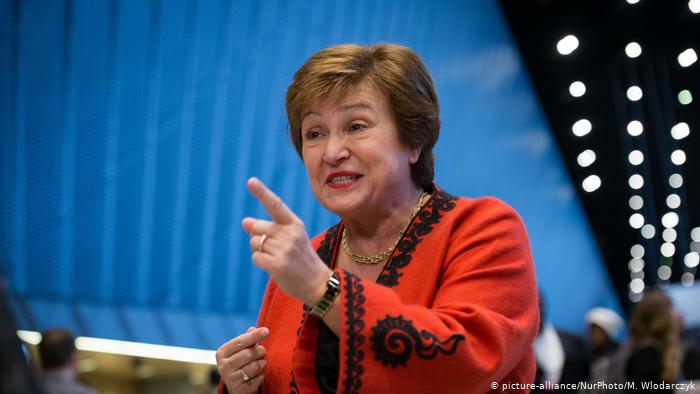Ghana and member countries of the International Monetary Fund will benefit from a $650 billion fund approved by the governing board of the Fund to fight the impact of Covid-19 on their economies.
The 190-nation lending institution said its board of governors approved the expansion of its reserves known as Special Drawing Rights, the largest increase in the institution's history.
The fund will help Ghana to deal with rising debts and fallout from the Covid-19 pandemic on its economies.
“This is a historic decision – the largest SDR allocation in the history of the IMF and a shot in the arm for the global economy at a time of unprecedented crisis. The SDR allocation will benefit all members, address the long-term global need for reserves, build confidence, and foster the resilience and stability of the global economy. It will particularly help our most vulnerable countries struggling to cope with the impact of the COVID-19 crisis,” IMF Managing Director Kristalina Georgieva said.
The general allocation of SDRs will become effective on August 23, 2021.
The newly created SDRs will be credited to IMF member countries in proportion to their existing quotas in the Fund.
About $275 billion (about SDR 193 billion) of the new allocation will go to emerging markets and developing countries, including low-income countries.
“We will also continue to engage actively with our membership to identify viable options for voluntary channeling of SDRs from wealthier to poorer and more vulnerable member countries to support their pandemic recovery and achieve resilient and sustainable growth”, Ms. Georgieva said.
The IMF said one key option is for members that have strong external positions to voluntarily channel part of their SDRs to scale up lending for low-income countries through the IMF’s Poverty Reduction and Growth Trust (PRGT). Concessional support through the PRGT is currently interest free.
The IMF is also exploring other options to help poorer and more vulnerable countries in their recovery efforts. A new Resilience and Sustainability Trust could be considered to facilitate more resilient and sustainable growth in the medium term.
Latest Stories
-
The influence Ronaldo has on people, Cadman Yamoah will have same on the next generation – Coach Goodwin
15 mins -
Gender Advocate Emelia Naa Ayeley Aryee Wins prestigious Merck Foundation Awards
1 hour -
South Africa bursary scandal suspects granted bail
2 hours -
Ecobank successfully repays $500m Eurobond due April 18
2 hours -
Re: Doe Adjaho, Torgbui Samlafo IV, call for Unity among Paramountcies in Anlo
2 hours -
Extortion and kidnap – a deadly journey across Mexico into the US
2 hours -
Rihanna says fashion has helped her personal ‘rediscovery’ after having children
2 hours -
Development Bank Ghana targets GH¢1bn funding for commercial banks in 2024
2 hours -
Shatta Movement apologises to Ghana Society of the Physically Disabled after backlash
3 hours -
Sammy Gyamfi writes: Tema-Mpakadan Railway Project; A railway line to nowhere
3 hours -
Bright Simons: Is the World Bank saving or harming Ghana?
4 hours -
CAF Cup: RS Berkane banned from entering Algeria because of a map of Morocco with its Sahara
4 hours -
The media isn’t doing what is expected of journalism – Sulemana Braimah
4 hours -
Truck driver who caused train accident jailed 6 months
4 hours -
Music review: Okyeame Kwame proves rap dexterity on ‘No Competition’
4 hours

